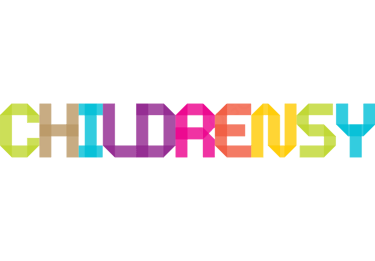Coca-Cola Rolls Out Innovative ‘Reverse Vending Machines’ on College Campuses: ‘Will Soon Be a Part of Everyday Life’
The beverage giant launches a sustainability push aimed at making recycling as easy and rewarding as buying a drink.
Kylo B
10/6/20253 min read


Coca-Cola Rolls Out Innovative ‘Reverse Vending Machines’ on College Campuses: ‘Will Soon Be a Part of Everyday Life’
The beverage giant launches a sustainability push aimed at making recycling as easy and rewarding as buying a drink.
October 4, 2025 Atlanta, GA Coca-Cola is taking a new approach to recycling by introducing “reverse vending machines” across college campuses nationwide, machines that allow students to return empty bottles and cans for instant rewards such as digital coupons, campus credits, or donations to sustainability projects.
The initiative, which launches this month at 20 universities, is part of Coca-Cola’s broader “World Without Waste”campaign, a global effort to collect and recycle the equivalent of every bottle or can the company sells by 2030.
“We want recycling to feel natural, accessible, and even fun,” said Bea Perez, Coca-Cola’s Chief Sustainability Officer, in a statement. “Reverse vending machines are not just about collecting bottles, they’re about changing behavior. We believe this will soon be part of everyday life.”
How the Machines Work
The reverse vending machines (RVMs) resemble traditional vending machines, but in reverse. Instead of dispensing a drink, they accept empty plastic or aluminum containers, scan their barcodes to verify the brand, and issue digital rewards through a connected app.
Students can earn:
Campus dining or bookstore credits
Discounts on Coca-Cola products
Entries into sustainability prize drawings
Or even donate their earnings to local environmental causes
The machines, manufactured in partnership with Tomra Systems, a Norwegian recycling technology company, are equipped with AI-powered sensors that can identify materials and detect contamination to ensure cleaner recycling streams.
A New Generation of Recyclers
Coca-Cola says the college rollout is aimed at younger consumers who are both environmentally conscious and tech-savvy.
“Students today care deeply about climate issues, but convenience still matters,” said Jennifer Mann, President of Coca-Cola North America. “This is about meeting them where they are, at dorms, student centers, and dining halls, and turning recycling into a habit, not a chore.”
The company plans to expand the pilot to 100 campuses by late 2026, including community colleges and historically Black colleges and universities (HBCUs).
Universities participating in the first phase include Arizona State University, the University of Michigan, Florida State University, and UCLA, among others.
Why It Matters
The U.S. recycling rate for plastic beverage containers hovers around 29%, according to the EPA, and has remained stagnant for years.
Coca-Cola, one of the world’s largest producers of plastic bottles, has faced sustained criticism from environmental groups for its role in global plastic waste.
By making recycling easier and more rewarding, the company hopes to close that loop.
“We know we’re part of the problem, and we’re working to be part of the solution,” Perez said. “If everyone returns their bottles, we can turn waste into new packaging instead of pollution.”
Environmental Advocates React
Environmental groups offered cautious optimism about the program, praising the innovation but urging Coca-Cola to go further in cutting its plastic use.
“Reverse vending is a smart step, but it doesn’t solve the larger issue, Coca-Cola still produces billions of single-use bottles each year,” said Judith Enck, president of Beyond Plastics. “We need both better recycling and fewer bottles.”
Still, campus sustainability directors and student groups have largely welcomed the machines.
“Students love the instant feedback,” said Kevin Cho, sustainability coordinator at UCLA. “They drop in a bottle, hear it crunch, and see a reward pop up on their phone. That loop makes recycling tangible.”
A Broader Trend
Coca-Cola’s move follows similar efforts by PepsiCo and Nestlé, both of which have tested reverse vending programs in Europe and Asia. Some municipalities, like New York City and Seattle, have also explored partnerships to install RVMs in public spaces.
Economists say such programs could eventually support deposit-return systems, where consumers pay a small refundable fee for each beverage container, an approach already used in several U.S. states.
“This is the private sector anticipating where policy is headed,” said Dr. Laura Peterson, an environmental policy analyst at the Brookings Institution. “If consumers start expecting cash or credit for recycling, it could reshape how we handle packaging waste in America.”
Looking Ahead
Coca-Cola says the data collected from the machines, including how often and where they’re used, will help the company refine its sustainability efforts and track progress toward its 2030 recycling goals.
Perez said the ultimate vision is for reverse vending to become as commonplace as recycling bins are today:
“Our dream is that no Coca-Cola bottle ever becomes trash. These machines are just one way to make that dream real.”

